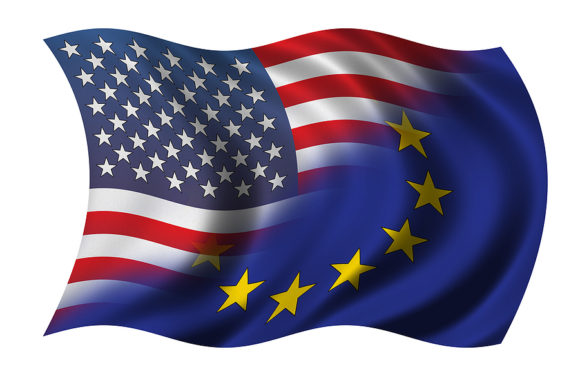Some U.S. financial institutions could be locked out of the European market if Donald Trump’s administration repeals global rules imposed in the wake of the financial crisis, a top EU official said on Friday.
Valdis Dombrovskis, vice president of the European Commission and the EU’s financial services chief, said international rules agreed during the 2007-09 crisis must be upheld to avoid undermining financial stability.
“International finance needs international regulatory cooperation. Without it, we run the risk of regulatory arbitrage and renewed instability,” Dombrovskis said in a speech in London.
U.S. President Donald Trump signed an executive order last week to review Dodd-Frank, a U.S. law that implements a welter of international rules agreed by the United States, the EU and other major economies during the global banking meltdown.
“We are sensitive to talk of unpicking financial legislation which applies carefully negotiated international standards and rules,” Dombrovskis said.
“Lax regulation in one country can create conditions for inadequate regulation and contagion throughout the world.”
Dombrovskis said the EU will uphold the reforms it introduced to toughen bank capital rules – based on the globally agreed norms – and will be “ready to take the necessary measures to protect and strengthen these achievements.”
The EU has allowed clearing houses, insurers and other financial firms from the United States and other non-EU countries to operate in the bloc because it deemed their home rules to be “equivalent” or as strict as those in the EU.
But granting equivalence depends very much on the specific conditions of individual sectors and countries when the decision was made, he said.
“If these conditions change, we will have to reassess the situation,” Dombrovskis said.
The European Commission can unilaterally scrap an equivalence decision by giving a month’s notice.
Dombrovskis’ warning could equally apply to Britain, whose financial firms may need to rely on “equivalence” rulings after the country leaves the bloc in 2019. Some pro-Brexit campaigners say departure would allow Britain to ditch some EU rules.
London will only continue to thrive as an international financial center on the basis of a strong, international regulatory system, he said.
Trump’s regulatory review has also raised questions about future international rulemaking at bodies like the Basel Committee on banking standards, and the Financial Stability Board (FSB), which coordinates regulation across the Group of 20 economies (G20).
G20 finance ministers and central bankers meet in Germany in March and their communique will be scrutinized for signs of discord between the United States and other members over regulation.
Dombrovskis said there were strong arguments for continued international cooperation at Basel and the FSB, but for this to happen there was a need for “partners to cooperate with.”
He singled out a letter from a U.S. lawmaker telling U.S. Federal Reserve Chair Janet Yellen not to negotiate new international banking rules.
Dombrovskis said there was a need to preserve European values like free rational thought, tolerance, solidarity and openness when threatened by “alternative facts” in financial and other sectors.
(Editing by Susan Fenton)
Related:
- Trump Orders Dodd-Frank Review
- Trump Taps Billionaire Icahn, Activist Investor and Dodd-Frank Critic, as Regulation Advisor
- Trump’s ‘2-for-1’ Deregulation Scheme Easier Said Than Done
- Fitch Sees Large Insurers Gaining from Trump Deregulation
- Rep. Hensarling’s Plan Could Be Blueprint for Trump Revamping of Dodd-Frank
Topics USA Legislation Europe
Was this article valuable?
Here are more articles you may enjoy.



 New York’s Mid-Hudson Insurance to Acquire Hanover Fire of Pennsylvania
New York’s Mid-Hudson Insurance to Acquire Hanover Fire of Pennsylvania  State Farm Adjuster’s Opinion Does Not Override Policy Exclusion in MS Sewage Backup
State Farm Adjuster’s Opinion Does Not Override Policy Exclusion in MS Sewage Backup  Portugal Deadly Floods Force Evacuations, Collapse Main Highway
Portugal Deadly Floods Force Evacuations, Collapse Main Highway  Florida Engineers: Winds Under 110 mph Simply Do Not Damage Concrete Tiles
Florida Engineers: Winds Under 110 mph Simply Do Not Damage Concrete Tiles 

